








| Ruddy Darter (Sympetrum sanguineum (Müller, 1764)) |









|
|
Scientific name: Sympetrum sanguineum (Müller, 1764) Common name: Ruddy Darter French name: Sympétrum rouge sang Order: Odonata Suborder: Anisoptera Family: Libellulidae Wingspan: 55mm Biotope: Stagnant water with dense vegetation. You can also see the Ruddy Darter far of water in woodlands. Geographic area: Widespread in Europe, northern Asia and northern Africa. Flight time: June to September. |
The male's body is bright red, the female's body is pale brown. The Ruddy Darter has transparent wings. The totally black legs allow to differentiate the Ruddy Darter from the other red sympetrum species. The eyes are dorsally broadly contiguous. The male often lands on the extremity of a stem and hunts from this location. |
| [To know more about the Ruddy Darter] [Next picture] [Top] |
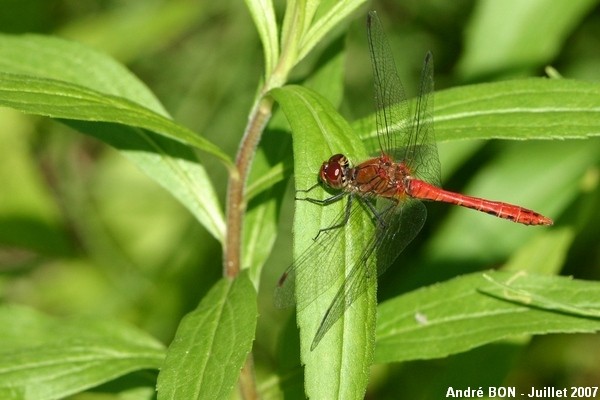
|
It is rather easy to observe Ruddy Darters because their red colour allows to detect them among the vegetation. |
| [To know more about the Ruddy Darter] [Next picture] [Previous picture] [Top] |
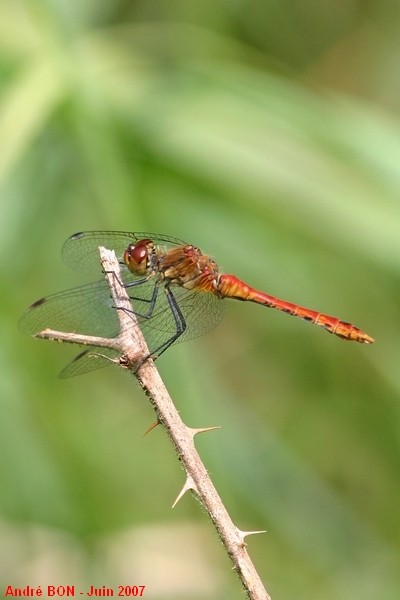
|
I am not yet an expert to identify the various sympetrum species. This current identification is mainly based on the black colour of the legs, the shape of the abdomen which is constricted in the middle and the yellow marks near the base of the wings. Thanks to send me any remark about the identification of this dragonfly. |
| [To know more about the Ruddy Darter] [Next picture] [Previous picture] [Top] |
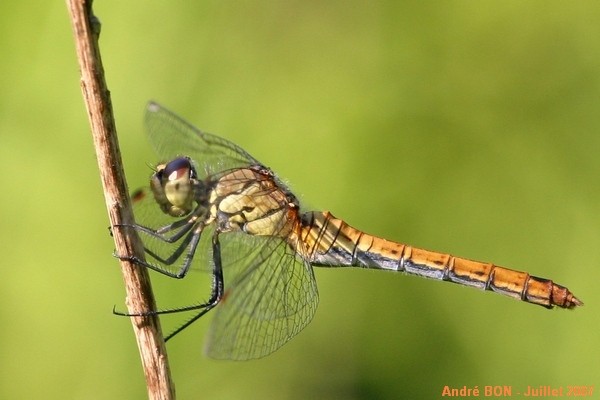
|
Close view of a female. |
| [To know more about the Ruddy Darter] [Next picture] [Previous picture] [Top] |
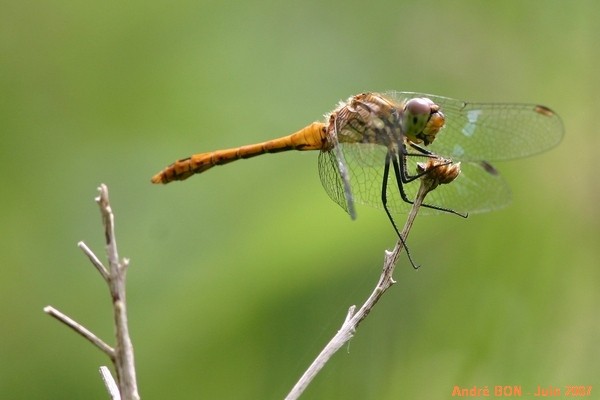
|
The identification of this female is based on the black colour of the legs, the eyes which are contiguous on the top of the head and on the black mark on the side of the eye. Thanks to send me any remark about the identification of this Dragonfly. |
| [To know more about the Ruddy Darter] [Next picture] [Previous picture] [Top] |
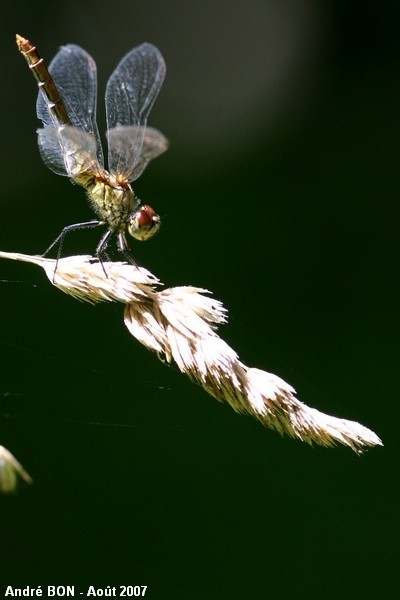
|
The shape of the black marks next to the eyes is a important key for the identification of the various darter species. |
| [To know more about the Ruddy Darter] [Next picture] [Previous picture] [Top] |
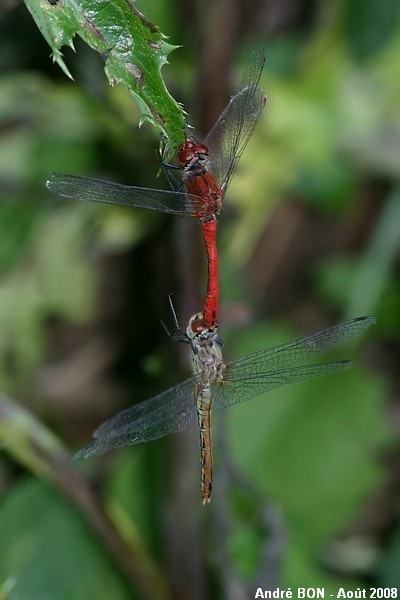
|
I have observed this tandem downside the road verge. I have shot two pictures and, by chance, the male is sharper on the first one and the female is sharper on the second one. This view is a merge of the two pictures. I have hesitated with Sympetrum fonscolombii. I think this is Sympetrum sanguineum because the veins of the wings are clearly black on the male and on the female. |
| [To know more about the Ruddy Darter] [Next picture] [Previous picture] [Top] |
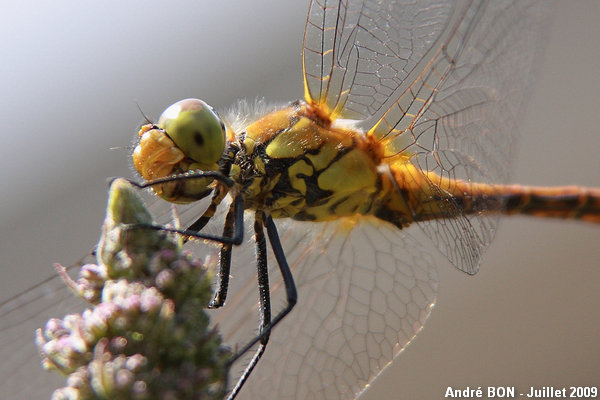
|
This Ruddy Darter came to land on the Buddleia which is more used to getting the visit of butterflies. The approach has been very easy and I have been able to try different angles of view. |
| [To know more about the Ruddy Darter] [Next picture] [Previous picture] [Top] |
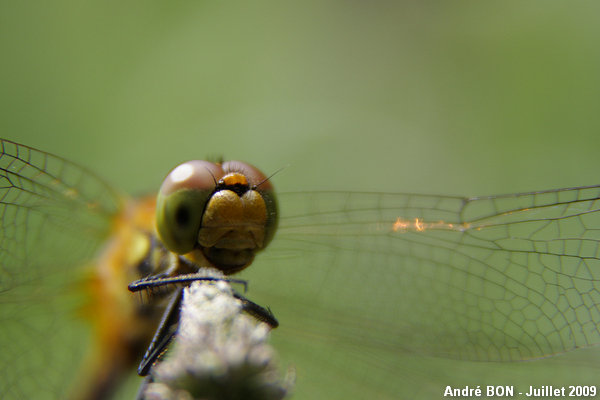
|
I can still improve in stability so that we can see the numerous facets composing the eyes. |
| [To know more about the Ruddy Darter] [Previous picture] [Top] |
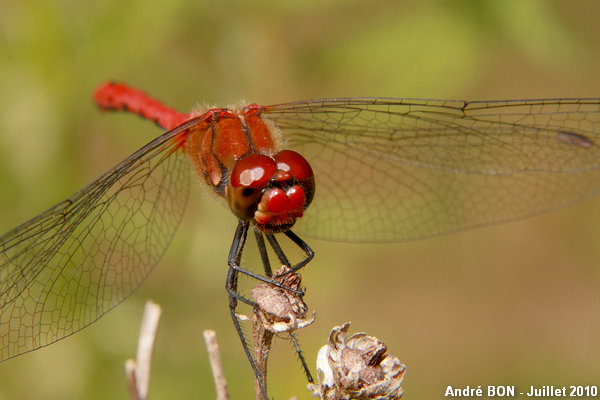
|
Same picture with a nice mature male. |